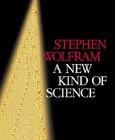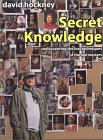|
Books on the Nature of the Self
and the Origin of Consciousness
 AION, Researches into the Phenomenology of the Self, by Carl Gustav Jung (Bollingen Series XX, Vol. 9, II, Princeton, 1959). No list of
books about consciousness and the self would be complete without a mention of C.G. Jung. I have chosen this volume because it is most pertinent, but all of Jung’s
works are worth reading and re-reading. Jung’s concept of the self as the archetype of wholeness and integration, and his writings on the “process of
individuation” are crucial to understanding the psychology of modern men and women. I was unable to find this volume listed on Amazon.com, so I presume it is
out of print. Have a book search service find it for you, or check with your local used book store. AION, Researches into the Phenomenology of the Self, by Carl Gustav Jung (Bollingen Series XX, Vol. 9, II, Princeton, 1959). No list of
books about consciousness and the self would be complete without a mention of C.G. Jung. I have chosen this volume because it is most pertinent, but all of Jung’s
works are worth reading and re-reading. Jung’s concept of the self as the archetype of wholeness and integration, and his writings on the “process of
individuation” are crucial to understanding the psychology of modern men and women. I was unable to find this volume listed on Amazon.com, so I presume it is
out of print. Have a book search service find it for you, or check with your local used book store.
Click here to special order this book from Amazon.

A History of the Mind, by Nicholas Humphrey (Harper, 1992).
Subtitled “Evolution and the Birth of Consciousness,” the book is a serious attempt to create a theory of consciousness that fits all the known data and isn’t rooted in
metaphysics. Humphrey concludes that consciousness is the result of neural feedback loops in entities that are capable of sensory perception. His chapter on the phonomenon of blindsight is fascinating.
Click here to order this book from Amazon.
 The Prehistory of the Mind, by Steven Mithen (Thames and
Hudson, 1996). Subtitled “The Cognitive Origins of Art and Science.” This is an excellent book on the development of mind by an archaeologist. He provides an
excellent summary of various “modular” theories of mind which posit multiple intelligences that may be autonomous or interdependent, depending on the
evolutionary branch of the entity involved. When these various intelligences or modules function together, interdependently, we have a modern, conscious homo sapiens sapiens. This is a highly speculative work, in that it tries to link the
evolution of these mental modules to the evolution of the primate group that leads to modern man through a careful review of relevant information gleaned from archaeology and
paleontology. I don’t always think his analogies appropriate, but I find them helpful nonetheless. I feel
obliged to throw in a ritual gripe about modern authors’ inability to use the subjunctive tense in English, but it’s a very interesting book nonetheless. The Prehistory of the Mind, by Steven Mithen (Thames and
Hudson, 1996). Subtitled “The Cognitive Origins of Art and Science.” This is an excellent book on the development of mind by an archaeologist. He provides an
excellent summary of various “modular” theories of mind which posit multiple intelligences that may be autonomous or interdependent, depending on the
evolutionary branch of the entity involved. When these various intelligences or modules function together, interdependently, we have a modern, conscious homo sapiens sapiens. This is a highly speculative work, in that it tries to link the
evolution of these mental modules to the evolution of the primate group that leads to modern man through a careful review of relevant information gleaned from archaeology and
paleontology. I don’t always think his analogies appropriate, but I find them helpful nonetheless. I feel
obliged to throw in a ritual gripe about modern authors’ inability to use the subjunctive tense in English, but it’s a very interesting book nonetheless.
Click here to order this book from Amazon.
The Origin of Consciousness in the Breakdown of the Bicameral Mind, by Julian Jaynes (Houghton Mifflin Company, Boston: 1976). This book has been a major influence
on my thinking for more than a decade. Jaynes' thesis is that consciousness is a relatively recent  phenomenon, little more than three millennia old. Consciousness can be correlated
with the development of connections between the left and right hemispheres of the brain, which in turn can be correlated with the evolution of language and the
emergence of writing. This connection of the brain's hemispheres was more tenuous in early women and men, who were not conscious in the modern sense.
Jaynes refers to them as bicameral people--people with divided minds. Jaynes theorizes that right brain communicated with left brain via the anterior commissure
utilizing the mechanism of speech; that bicameral people (more or less) heard a voice in their heads that told them what to do in every situation. This is the origin of god
(s). The voice of God told bicameral people what to do. Jaynes' first illustration is from the Illiad of Homer: every time there is a crisis among the Hellenes, a god appears and tells the hero
what course of action he should take. Jaynes interprets schizophrenia as a reversion to bicameral functioning--it is invariably accompanied by voices in the head which compel the victim to do things. phenomenon, little more than three millennia old. Consciousness can be correlated
with the development of connections between the left and right hemispheres of the brain, which in turn can be correlated with the evolution of language and the
emergence of writing. This connection of the brain's hemispheres was more tenuous in early women and men, who were not conscious in the modern sense.
Jaynes refers to them as bicameral people--people with divided minds. Jaynes theorizes that right brain communicated with left brain via the anterior commissure
utilizing the mechanism of speech; that bicameral people (more or less) heard a voice in their heads that told them what to do in every situation. This is the origin of god
(s). The voice of God told bicameral people what to do. Jaynes' first illustration is from the Illiad of Homer: every time there is a crisis among the Hellenes, a god appears and tells the hero
what course of action he should take. Jaynes interprets schizophrenia as a reversion to bicameral functioning--it is invariably accompanied by voices in the head which compel the victim to do things.
I read this book with great skepticism, but the further I read the more I thought Jaynes must be on to something. He is not right in every particular and some of his terminology is awkward, but I believe he
has uncovered a useful paradigm for the evolution of consciousness. Jaynes was professor of psychology at Princeton University. He died in 1997 at the age of 77.
|
























